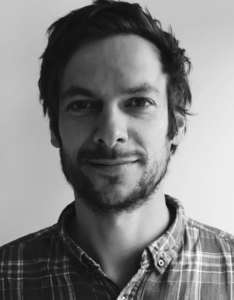 I was there the first time my father saw the psychiatrist. I think it was the only time, in his study at home. I remember I was seated behind him, a bit to the side. A little out of the way. Walking down the corridor afterwards, my father still seated by the fire, the psychiatrist asked me, “Is there a shotgun in the house?”
I was there the first time my father saw the psychiatrist. I think it was the only time, in his study at home. I remember I was seated behind him, a bit to the side. A little out of the way. Walking down the corridor afterwards, my father still seated by the fire, the psychiatrist asked me, “Is there a shotgun in the house?”
“Yes,” I replied—my father used to farm.
“Find a new home for it please.”
She prescribed some medication and requested a head scan. A community psychiatric nurse paid him visits—described by my father, not unkindly, as “a little bully.”
The scan results came through several months later. But my father never saw them. He had hung himself from the oak tree behind the house a few weeks earlier.
That consultation I sat in on, invited by my father for moral support, was one of the last I witnessed before qualifying as a doctor. His suicide coincided with my first weeks on the wards.
I work in psychiatry now and sometimes look back at that consultation and the approach it represents. There was little dialogue, but mostly a series of closed questions. There was little invitation for his family to be involved. Underpinning the approach is the fantasy that the medical expert can diagnose an illness to cure through a battery of technical interventions—drugs and behavioural therapy, for example.
My father had good reason not to be enamoured by psychiatry. He would have witnessed the slowing, stiffness, and tremor of his mother before her death: side effects of the generous lashings of antipsychotics prescribed in those days, symptoms of a casual negligence. He would also have seen the effects of electroconvulsive therapy on her. She attempted suicide with a shotgun but, like her son many years later, succeeded with a rope.
I believe that with greater involvement of his family and other social networks my father might have had a stronger chance of recovery. This is sadly often the case for people experiencing severe mental illness. In a 2014 service user survey by the Care Quality Commission, only 55% of those surveyed found that “a family member or someone close to me was involved as much as I would like.” This can lead to poor collaboration: only 42% felt that “mental health services understand what was important in my life,” with only 41% stating “services help me with what is important.”
Open Dialogue is an approach that marks a departure from such care. It was developed in Western Lapland in the 1980s for the treatment of acute mental illness, such as psychosis. A fundamental principle is that treatment is carried out via meetings involving the patient together with their family members and extended social network. The focus on promoting dialogue is primary and, indeed, is the focus of treatment, to create the opportunity for patients and families to increase their sense of agency in their own lives. This represents a fundamental culture change in the way mental health professionals talk to and about patients.
Open Dialogue has spread across much of Scandinavia and beyond. In Berlin, mental health commissioners only purchase approaches that embed an Open Dialogue approach. New York recently invested $50 million in an Open Dialogue service. The variant used there integrates peer workers into the model, and has inspired “Peer-supported Open Dialogue” (POD) in the UK.
Its growing popularity is because it appears to work. In a two year follow-up study comparing the approach to conventional treatment, patients were found to have mild or no symptoms in 82% of cases with the new approach, compared to 50% with usual treatment. Antipsychotic prescribing was reduced by 65%. In a subsequent five year follow-up, 86% of those treated with the approach had returned to work—a rate that mental health services in the UK could only dream of.
Dr Russell Razzaque is a consultant psychiatrist in North East London who is taking a lead on the development of the Open Dialogue approach in the UK. In a recent talk he gave he was challenged on the feasibility of the approach, given that one of its key principles, psychological continuity, means the same team is responsible for treatment (engaging with the same social network) for the entirety of the treatment process. Retention and continuity of medical and nursing staff can be a problem for mental health teams and patients in the NHS. Dr Razzaque suggested that the issue might resemble the problem of the chicken and the egg: that burnout, low morale, and high staff turnover is related to the system of care we work in and “administer.”
I can relate to his point. I have sometimes stopped en route to work, unsure how much longer I can continue. There is a sense of betrayal to my father and grandmother by working in a profession that failed them, and which is the only medical specialty to have its own survivor movement, not from the illnesses it hopes to treat, but from the ministrations of the profession itself.
Open Dialogue might offer me a way to work that my father, were he still sitting by that fire, might understand, respect, and respond to. For those living with severe mental illness, it could offer more hope of life after recovery.
This blog was first published on the Huffington Post website.
Jonny Martell is a CT3 in psychiatry training in London.
Competing interests: I have read and understood BMJ policy on declaration of interests and declare the following interests: None.
